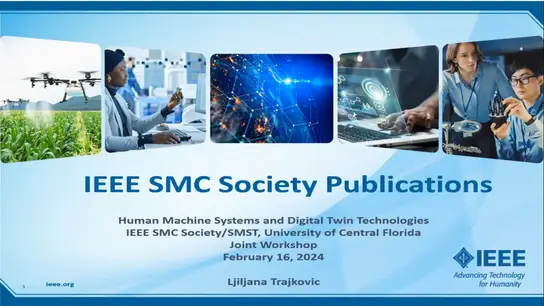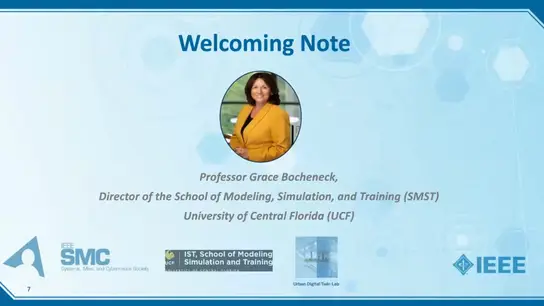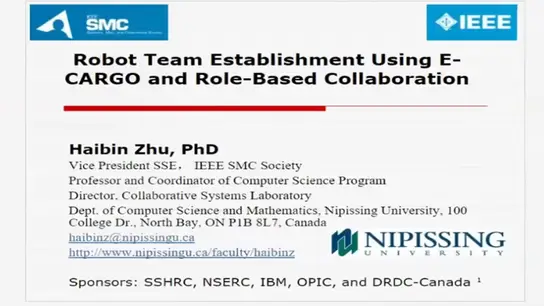Quantifying Extended Human Plus Tool Cognitive Systems
Mary Jean Amon, Luis H. Favela
-
Members: FreeSMCS
IEEE Members: $11.00
Non-members: $15.00Length: 00:15:11
16 Feb 2024
Quantifying extended human-plus-tool cognitive systems
Dr. Mary Jean Amon, Luis H. Favela, School of Modeling Simulation and Training, the University of Central Florida (UCF)
Dr. Mary Jean Amon is an Assistant Professor in the School of Modeling, Simulation, and Training at the University of Central Florida. She holds an M.A. and Ph.D. in Experimental Psychology from the University of Cincinnati, as well as an M.A. in Psychology in Education from Teacher’s College, Columbia University. Before joining UCF, she was a Postdoctoral Researcher in the Department of Psychological and Brain Sciences at Indiana University Bloomington, and then a Research Associate in the Institute of Cognitive Science at the University of Colorado Boulder. Her interdisciplinary research is informed by topics in cognitive science, computer science, and data science and centers on user-oriented research aimed toward optimizing decision-making and performance in the context of complex socio-technological systems. This includes augmenting our understanding of teamwork by identifying coordinative patterns and features of socio-technical tasks that enhance performance, as well as how the dynamics of human-computer interaction inform issues associated with online privacy. She has published in venues such as AIED, CHI, Cognitive Science, Communication Monographs, CSCW, ICMI, S&P, LAK, and ACM HEALTH. Her work has also been covered by ACM Tech News, Forbes, Inside Higher Ed, Washington Post, and Yahoo! news, among others.
Dr. Luis H. Favela is an Associate Professor of Philosophy and Cognitive Sciences at the University of Central Florida. He is a Fellow with the Research Corporation for Science Advancement and has held fellowships at University of Pittsburgh's Center for Philosophy of Science, and Duke University's Summer Seminars in Neuroscience and Philosophy. He earned his Ph.D. in Philosophy (Life Sciences Track) at the University of Cincinnati, where he concurrently earned a Master's in Experimental Psychology. Prior to Cincinnati, he earned a Master's in Philosophy at San Diego State University and a Bachelor's in English and Philosophy at the University of San Diego. His research is interdisciplinary, situated at the intersections of the cognitive sciences, experimental psychology, and the philosophies of mind and science.
Abstract:
An empirically supported methodological and theoretical framework is presented for quantifying the dynamics of human-plus-tool cognitive systems. Participants provided perceptual judgments regarding the affordance pass-through-ability of apertures of varying widths while using vision, blindfolded wielding a rod, and blindfolded wielding an Enactive Torch (a vibrotactile sensory-substitution device). Human-plus-tool movement dynamics were assessed via fractal, multifractal, and recurrence quantification analyses. Trials where participants utilized the rod or Enactive Torch demonstrated stable “self-similarity,” an indicator of adaptive and healthy single systems, regardless of aperture width, features of the participants’ judgments, participant characteristics, and trial order. Trials with the Enactive Torch exhibited slightly greater range of dynamic fluctuations than the rod trials, as well as less movement recurrence, which suggests that the Enactive Torch allowed for more fine-grained exploratory movements. Notably, although participants were more confident with visual judgments, they were significantly more accurate with tool-assisted haptic judgments. Findings provide support for the notion that human-plus-tool systems can be classified as extended cognitive systems and a framework for quantifying system-level properties of these systems.


